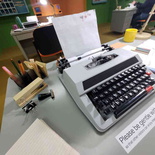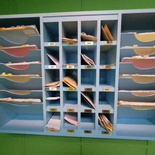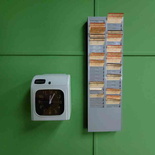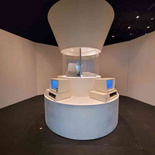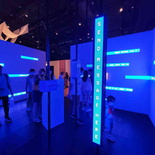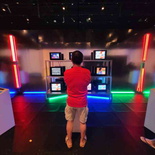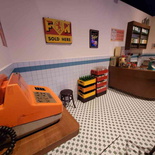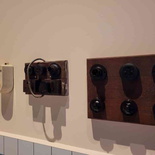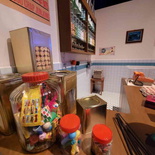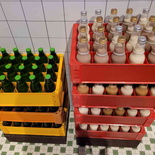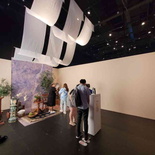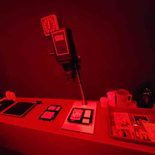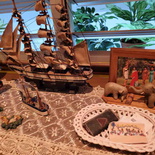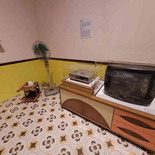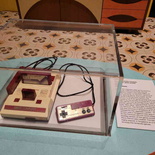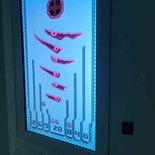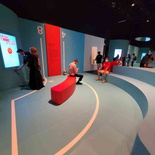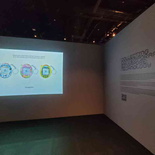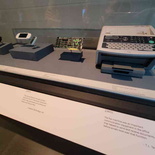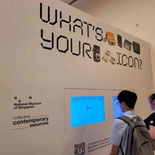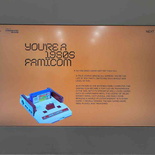OFF ON Everyday Technology is an exhibition showcase, exploring how everyday technological tools changed and shaped the lives of Singaporeans from the country’s period from the 1970s to the 2000s. It is presented as part of the National Museum’s Collecting Contemporary Singapore initiative.
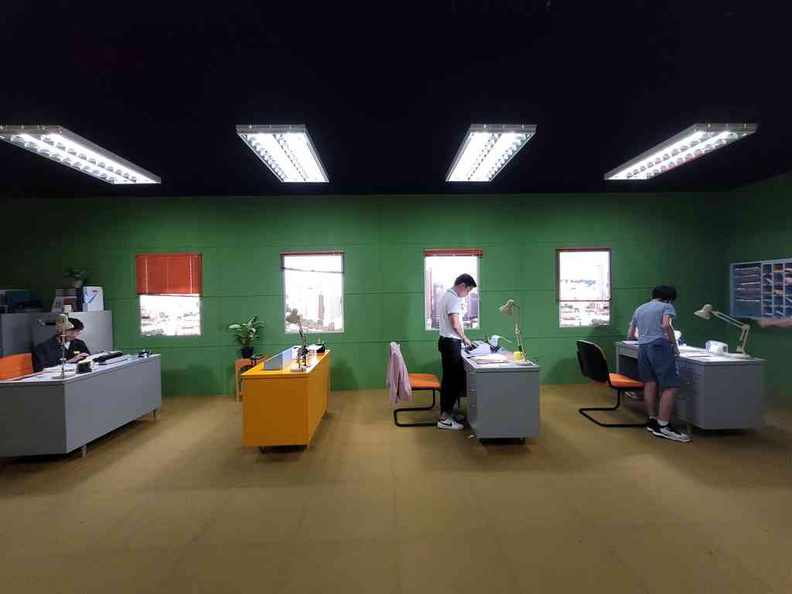
Furthermore, the temporary exhibition located in the basement gallery floors of the Singapore National museum. You might know it as the space which previously hosted other exhibitions. Examples includes Home Truly, Growing Up and Cai Guo Qiang’s Art Showcase “Head On”. It is curated by the Collecting Contemporary Singapore, which invites visitors to share old items they have.
Moreover, the galleries here flow you a logical yet linear fashion. The entrance and galleries laid out in serial, exiting back out into the basement museums basement atrium area. In a nutshell, the showcase takes you through familiar local settings at home, work and other social spaces with a small, yet specially curated selection of technology icons from Singapore’s past.
All in a days’ work
Moreover, the exhibition is set to the era of Singapore’s industrialisation and rapid transformation period from the 1970s. The exhibits start off with a walk through a retro office mock-up. It is complete with tables and work items on it. Also, the area here with the windows and walls are themed to a typical office day’s work.
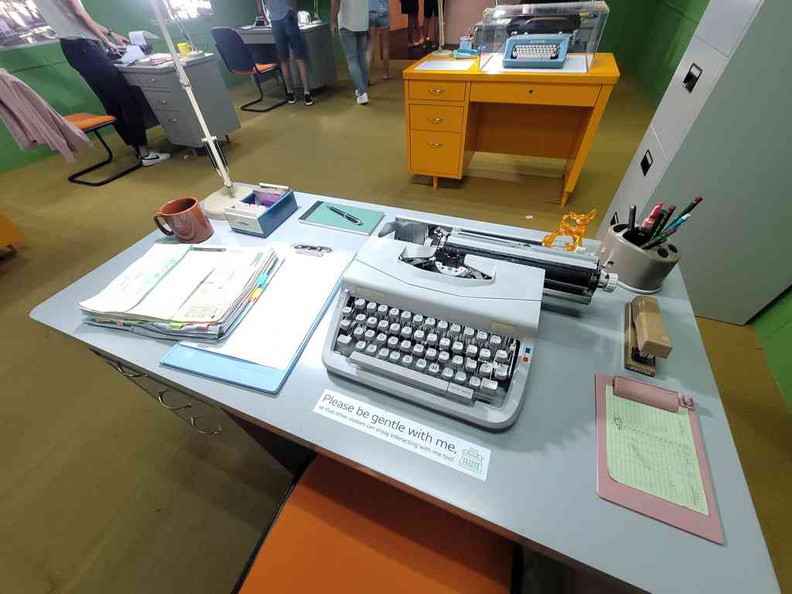
Additionally, the display table items are glued down to keep everything in place. Notably a couple of the type writers are not working well from abuses from visitors. Also, following the typewriter room, the galleries lead onto the “digital age”. It is a rather disappointing small display representing the personal computer. However, there could be more here to justify the digital age than just 2 computers. Maybe an old Mac, mechanical computer or mainframe computer would arouse more interest.
Notably, some exhibits are provided for my donors who loaned their items over to the museum. Items here include old personal computers here as well as telecommunications and entertainment devices such as the payphone, pager and the technicolour CRT television sets.
More Instagram, less educational
Next up is the Hello mobile telecommunications section. Here, you get a wall of shelves, each housing a phone type each. This range from handphones, office, home landmine phones and public payphones too. These are brought to you through animated colours and ringing sounds in this telecommunication sector.
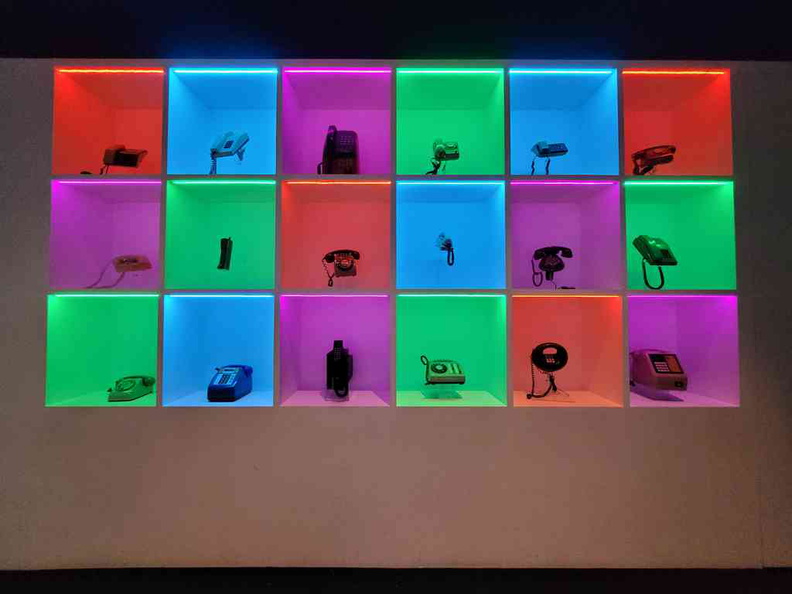
Furthermore, here, you can listen into pre-recorded messages in a recreation of an old saloon and a coffee shop. They are complete with some notable fixtures like coin-operated payphones.
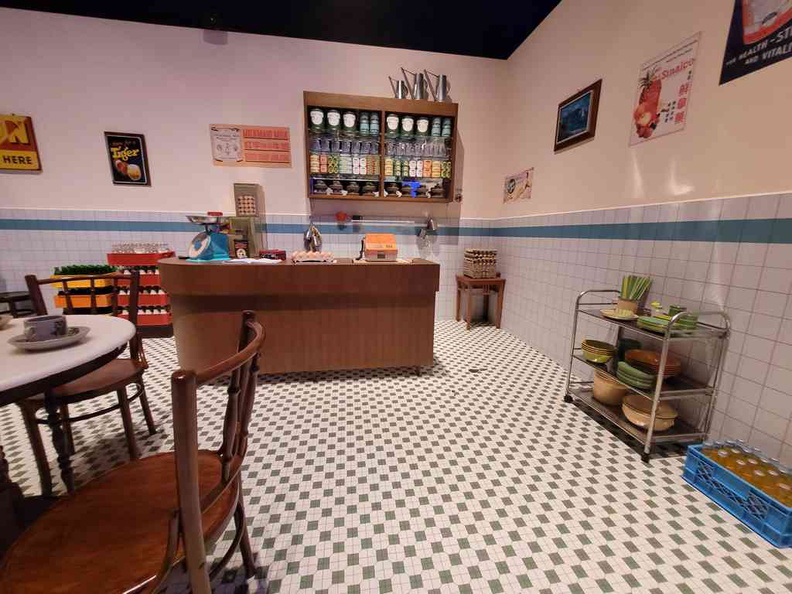
Also, notably, the saloon is quite a hit with older visitors. Many here relate to it in the old days in the saloon complete with pink themed walls. The coffee shop on the other hand is less striking, if it weren’t for the old wooden round marble tables.
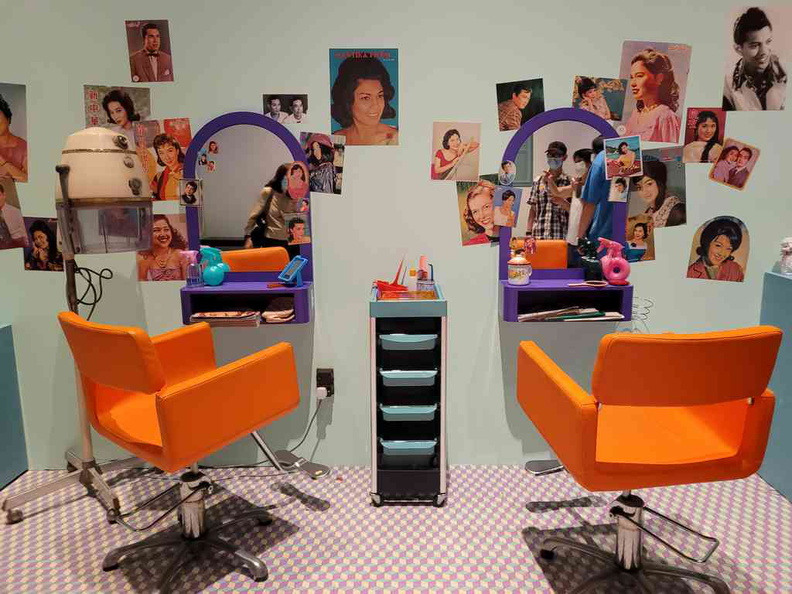
Moreover, a photo booth here is a crowd favourite judging by the long crowd and queues here. But I see it mainly only for its Instagram value than anything noteworthy historical or educational.
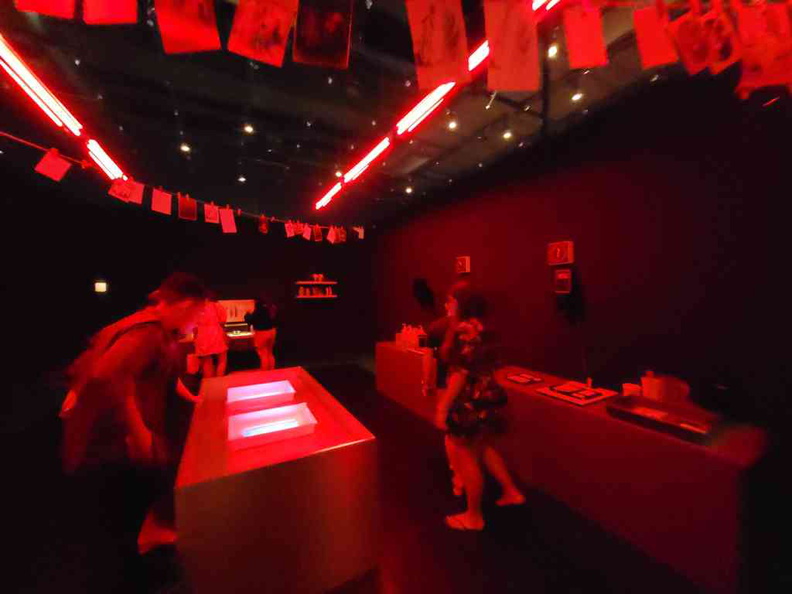
Also, this sector leads into a photo film processing dark room. The art of photo development is briefly talked about, less the exposure to harmful film processing chemicals. With digitization today, film is a trade craft fast becoming extinct.
A journey into living nostalgia
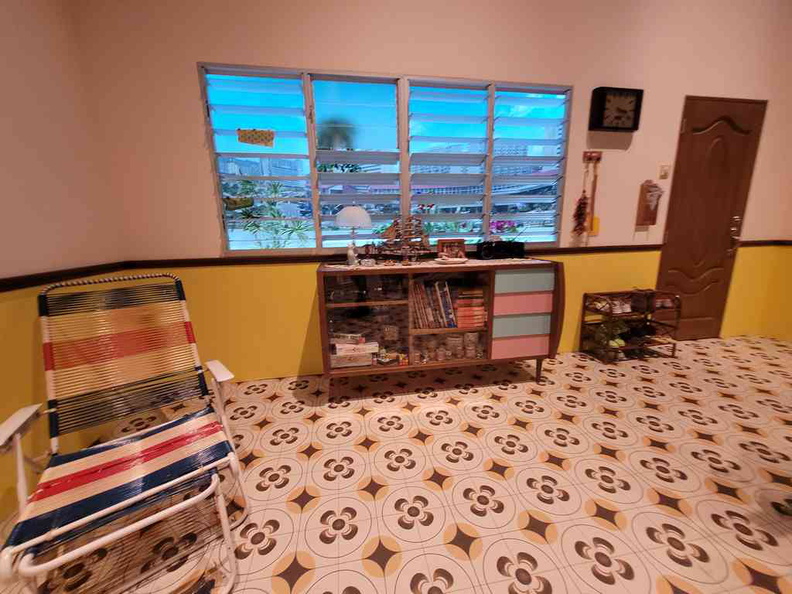
Moreover, the Art of living section has a TV array showcasing a number of old local favourites like Under one roof and morning cartoons. You can also find a nostalgic-looking HDB Living room mock-up.
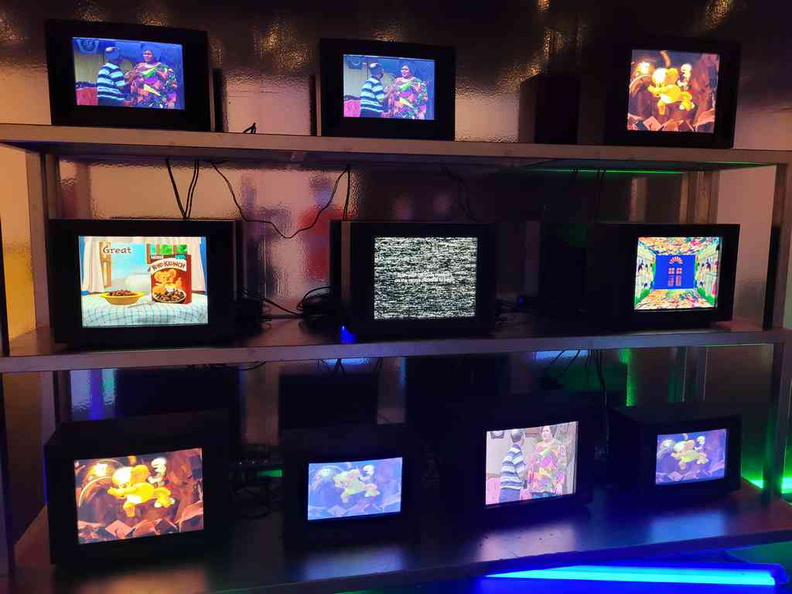
It is complete with a sofa set and small handheld arcade handheld toys like a Tomy pocketer on on display. Also, most of the display items tend to get lost within the display itself. Tad like a diorama themed to be more Instagram-friendly than educational.
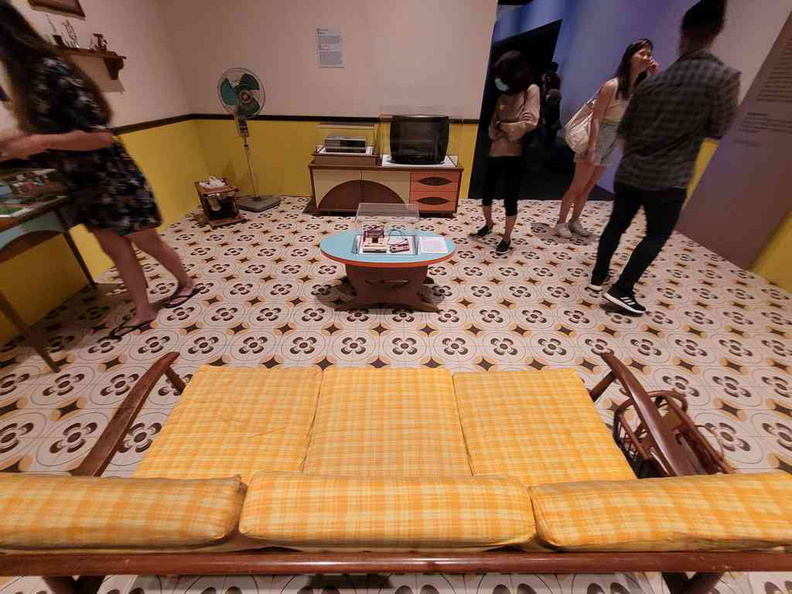
Old games
Furthermore, you might remember these from the growing up exhibition in the same museum upstairs. Also, you can find a Nintendo Famicom on display too, though I reckon the Nintendo Entertainment System (NES) and Sega Genesis would be a more popular mainstay for Singapore.
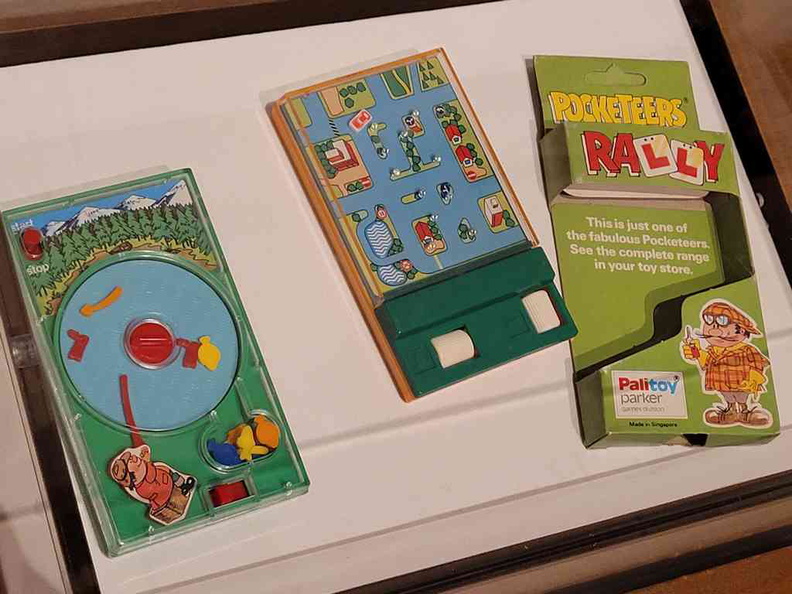
Additionally, there is a Game-on gaming console and opening seating area with seats and two large portrait screens for you to play a digital version of pin-ball pachinko-style game.
Here on digital screens, you propel a virtual metal ball and slotting it into slots of differing points to score. It is gimmicky, but most the gaming exhibits were non-functioning and in-need of repairs, it is quite a let-down.
The gallery ends exiting back into the museum’s basement floor. There is a quiz machine to determine your “machine type” from your personality. Also, the exhibition has a quirky digital gimmicky digital companion. It is accessible via QR code to access a to crack code and decode messages in quizzes escape room style to win a mystery prize. Bonus points if you can recognize or even used any of the technologies on display. Still, you do not need it to experience the exhibits.
A disappointing curation
Wrapping-up, you did expect a museum to find a collection of old items over the years. Going in the likes to what we saw at the London Science Museum, the Warsaw tech museum and German museum of tech. But sadly, there are not much educational elements in this exhibition and one more focused for entertainment and photo opportunities.
However, the curation is disappointing. I found the exhibition tad underwhelming when it comes to having sufficient items to tell a story of Singapore old times. Each section failing to capture all the technology or tell a story of how they come from within the era and how it was of significance to Singapore. There is also quite lack of real tech items on display. I reckon a visit to Old Habits at Mount Faber would probably yield more historical items than this exhibition combined.
All in all, that wraps up the OFF ON Everyday Technology here at the National Museum. You are good for the exhibition for an hour or less. If you are visiting expecting an educational perspective, I suggest to skip the exhibition. The galleries are more as an expository and not one on history or learning due to a glaring lack of items on display. It runs from 10 Jun to 30 Oct 2022. Entry is free for Singaporeans.

